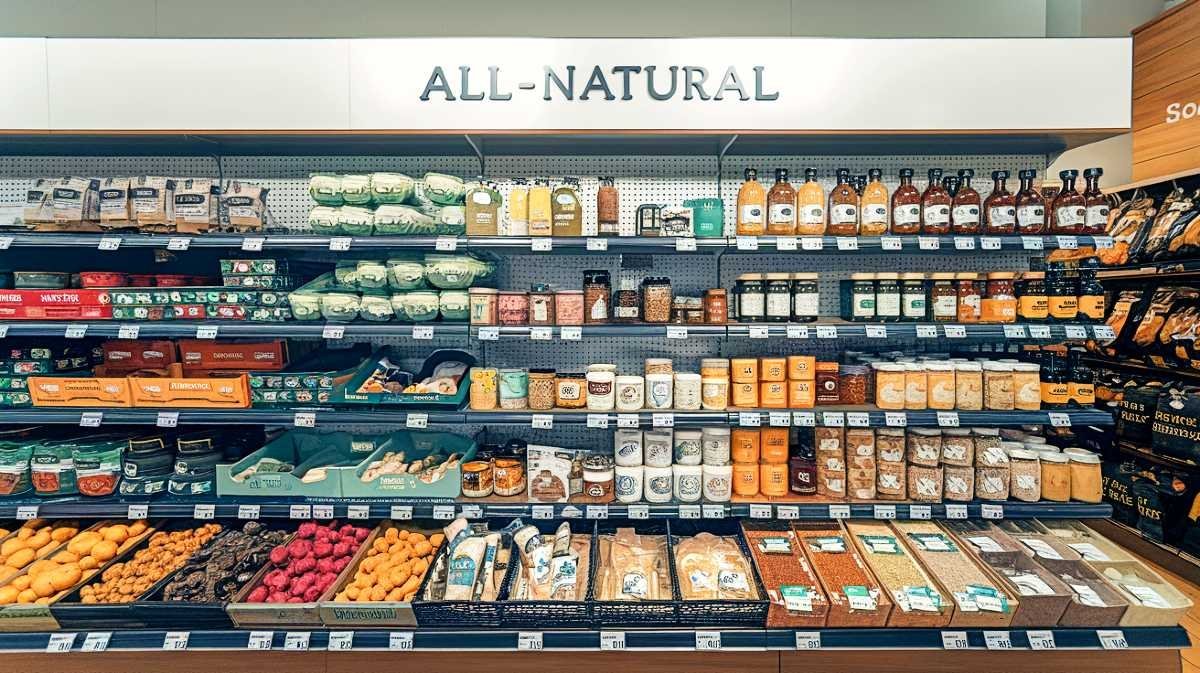Physical Address
304 North Cardinal St.
Dorchester Center, MA 02124
Physical Address
304 North Cardinal St.
Dorchester Center, MA 02124
A study reveals that people often overestimate the safety and effectiveness of natural products compared to artificial ones, despite evidence showing no significant differences between them.

A new study reveals that despite people’s strong belief in the benevolence of nature, natural products are often no safer, more effective, or more beneficial than their artificial counterparts — and sometimes, they’re even worse.
In modern society, the label “natural” often commands a premium.
From organic food to herbal remedies, many consumers automatically assume that natural products are better—safer, healthier, and more effective.
But a recent study published by Cambridge University Press on October 9, 2024, turns this assumption on its head, showing that people’s belief in the benevolence of nature is not always grounded in reality.
The researchers (Paul Rozin of the University of Pennsylvania, Richard Chen of the University of Hawai‘i at Mānoa, Sydney E. Scott of Washington University, and Corey Cusimano of the Yale School of Management) found that American adults largely preferred natural products, even when they were told these items were chemically identical to their artificial alternatives.
This tendency stems from a deep-seated psychological bias: We think nature is good.
In fact, 97% of study participants agreed with the statement “Nature is wonderful.” Yet, nature isn’t always as benevolent as we like to think.
Are you tired of spinning your wheels and getting nowhere? Simply put, you’re out of sync: you’re out of alignment with your astral configuration.
But: there’s a kind of map that can help you reclaim your alignment. Think of it as your own personal blueprint to success and happiness: a blueprint that will help you live your most amazing life.
Get started here.
It may be surprising to learn that some of the world’s most dangerous substances come straight from nature.
Take botulinum toxin, for instance.
It’s the deadliest poison known to humankind, yet it occurs naturally.
This is just one example of how nature isn’t always the friendly force we often imagine it to be.
Similarly, natural disasters like hurricanes, wildfires, and floods are often more destructive than human-caused events, but people still believe that natural occurrences are “less bad.” The study revealed that even people who had lived through devastating natural disasters were no more likely to lose their faith in the benevolence of nature than those who had never experienced such events.
The study involved 301 American adults, recruited via the online research platform Prolific.
Participants were evenly split between Republican and Democrat voters and came from states with high incidences of natural disasters, such as California, Texas, Oklahoma, Louisiana, and Florida.
The gender breakdown was nearly equal, with 146 males, 154 females, and 1 nonbinary participant.
Demographically, most participants were White (67%), followed by Latinx (11%), East Asian (9%), and Black or African American (7%).
Education levels varied, with 39% holding a bachelor’s degree, 23% having a graduate degree, and 20% having completed some college.
In terms of religion, 56% identified as Christian, while 32% identified as atheist or agnostic.
The study revealed that participants overwhelmingly favored natural options, even when they were told these products were chemically identical to their synthetic counterparts.
What makes these findings even more striking is that the participants who had personally experienced natural disasters (e.g., hurricanes, floods, wildfires) were no less likely to believe in the inherent goodness of nature than those who hadn’t. In fact, 76% of those who had faced natural disasters still rated nature positively, showing that direct encounters with nature’s destructive side did not significantly alter their belief in its benevolence.
Organic farming, for example, is often hailed as better for the environment, but the reality is far more complex.
Organic farms generally require more land to produce the same amount of food as conventional farms, which makes them less sustainable in the long term.
What’s more, studies have shown that organic produce doesn’t always taste better or provide more nutrients than conventionally grown food.
While many consumers still prefer to pay more for organic, these findings challenge the assumption that “natural” methods are always superior.
The study highlighted several situations where artificial products outperform their natural counterparts.
For instance, synthetic vitamins and natural vitamins are often chemically identical, yet participants still preferred the “natural” option.
This bias persists even when there is no functional difference between the two.
Synthetic materials and medicines can also be more durable, effective, and safer.
In many cases, artificial alternatives offer a smarter, more reliable choice than their natural counterparts, contradicting the widely held belief that natural is always better.
One of the most fascinating findings of the study was that even after experiencing the harsh reality of natural disasters, people’s belief in the goodness of nature didn’t waver.
Those who had survived hurricanes or earthquakes still believed that nature is inherently benevolent.
This reveals a deeply ingrained psychological attachment to the idea of a kind, nurturing nature—an attachment that is remarkably resistant to evidence of nature’s destructive power.
While nature certainly offers beauty and sustenance, it also delivers some of the world’s deadliest threats.
The belief that natural products are inherently better is not always grounded in fact.
In many cases, synthetic alternatives are safer, more effective, and more sustainable.
As we navigate our choices in food, medicine, and everyday products, it’s worth considering whether “natural” really means “better.” Next time you reach for that organic label, remember: sometimes, artificial is the smarter choice.